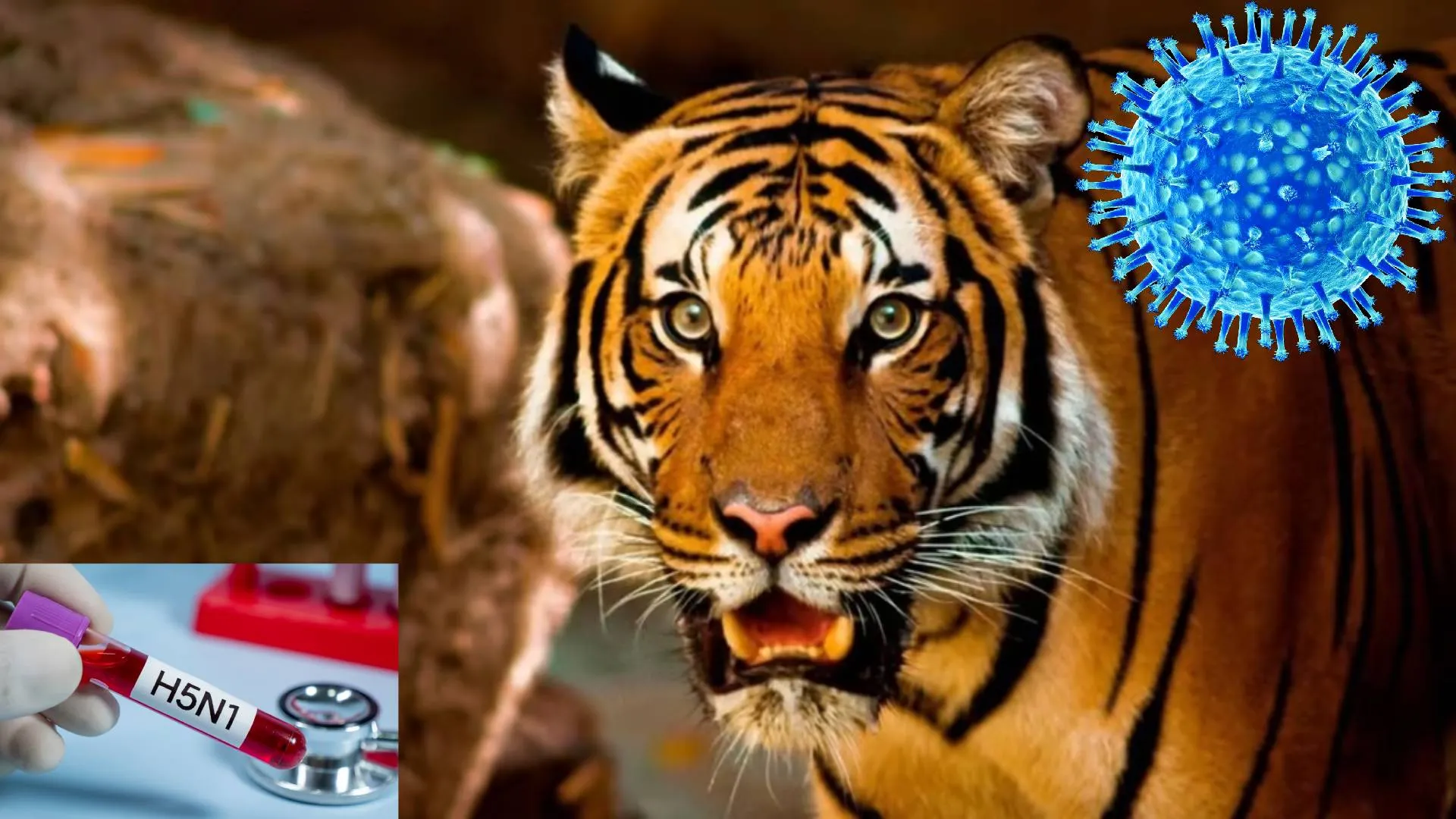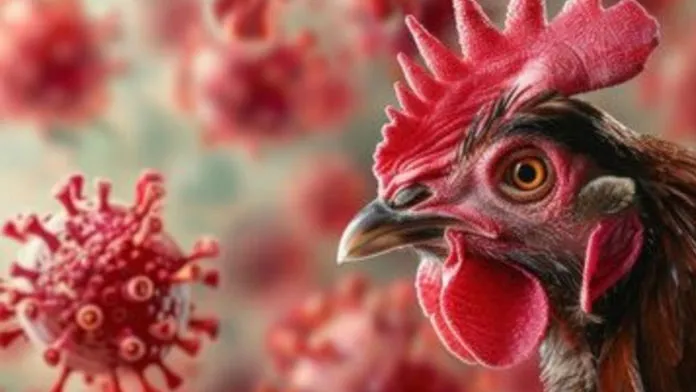Three tigers and a sub-adult leopard have died to the highly pathogenic avian flu H5N1 virus at the Gorewada Rescue Centre in Nagpur. Which marked a significant wildlife toll in captivity for the first time in India. Following this incident, a red alert has been issued across Maharashtra’s zoos, rescue, and transit centres.
The animals exhibited symptoms of the avian flu virus within a week of their arrival at the centre. These animals were transferred from Chandrapur due to human-wildlife conflict instances in December. Samples from the deceased animals were sent to the ICAR-National Institute of High-Security Animal Diseases in Bhopal. Then the ICAR confirmed the presence of the avian flu H5N1 virus. Gorewada project divisional manager SS Bhagwat shared these details with the media.
In response to the outbreak, containment protocols were swiftly implemented. Enclosures housing the big cats were disinfected and treated with fire blowers. Additionally, 26 leopards and 12 tigers at the facility have been examined and declared healthy. The facility remains closed to visitors as a precautionary measure, and employees and caretakers have undergone screening. Animal keepers are now using PPE kits to prevent further spread.
Instances of zoonotic disease cross-infections among humans remain rare. Although avian flu influenza primarily affects birds, certain strains like H5N1 and H5N8 have shown the capability to infect mammals, including large cats, through contact with infected birds or contaminated environments. The Wildlife Research and Training Centre at Gorewada stated that outbreaks in wild carnivores have been linked to the consumption of infected prey or raw meat.
In light of the recent deaths, the Centre’s Department of animal husbandry and dairying has instructed Maharashtra’s chief secretary to implement stringent biosecurity measures to prevent further transmission of the disease.





















